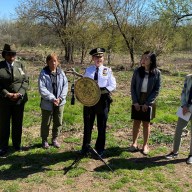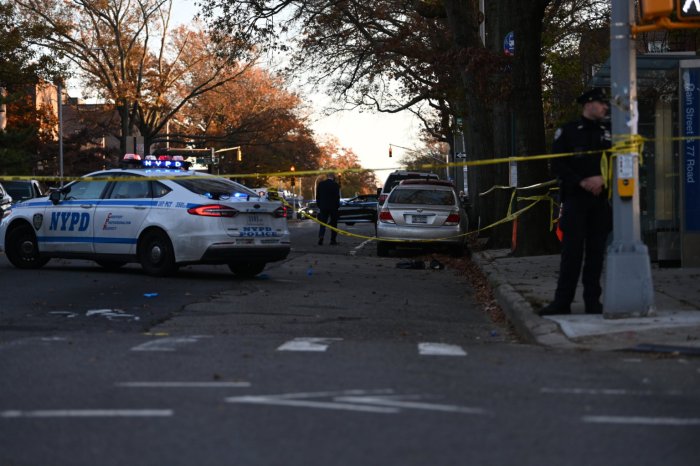By Michael Morton
Like other vehicles in its class, it accelerated faster than the automobiles most people drive and shifted through its gears while reaching rpms of 30,000 to 40,000.Simply put, it and the other radio-controlled race cars of the Queens United R/C Club may only be a foot long, but children's toys they are not.”Anything you can get for your car you can get for one of these cars,” said club member Frank Freni, 36, of Queens Village.Every Sunday from April to October, and some Saturdays, too, radio-controlled-car enthusiasts from around the borough gather in a Cunningham parking lot under the auspices of Queens United to run their cars, work on their equipment and occasionally race against each other.The meetings, now in their second season, are comprised of a dozen club members who have each paid a $50 yearly fee, plus additional hangers-on and passers-by. Queens United was founded last year by Mark Salonger, 47, a former computer network engineer from Forest Hills, who became disabled after a diabetic coma.”I was close to death,” said Salonger, whose nurse encouraged him to pursue his interest in radio-controlled cars upon his hospital release. He found other Queens hobbyists online and met some of them at Flushing Meadows Corona Park, later moving to Cunningham Park after securing a permit to operate there.”We were all newcomers,” Salonger, the president of Queens United, said of the other founders. “It has become a brotherhood.”On a recent Sunday morning, Salonger could not be there for health reasons, but other club members carried on in his absence. As drivers took turns twisting the knobs on their radio controls and negotiating their cars around old firehoses laid on the asphalt, curious parks workers and idle police gathered to watch. There was something oddly compelling about the tiny racers roaring around.”It's incredible if you think about it,” Freni said. “These things accelerate faster than your car.” As he spoke, one of the mini-racers hit a barrier and flipped over, skidding across the concrete.”That happens a lot,” Freni said. In addition to the race cars, club members also run small-scale monster trucks, launching them more than 20 feet off wooden ramps. On this particular Sunday, the member who owns the jumps had not yet arrived, so the owners tinkered with their vehicles. Nancy Troy of Manhattan broke in a new model truck her husband had purchased for her.”He bought it in a box and then took it apart,” she said. “That's what these guys do.”The cars and trucks the members work on can be powered by either gas or electric, with replacement titanium parts lasting longer and increasing the vehicles' cool quotient. Starter kits cost $300, but many people put several thousand dollars into their cars, plus the cost of tires – $16 – and the nitro methane fuel used for the gas engines at $30 a gallon. Running the engines too hot or too cold can cause damage, and participants carefully monitor temperatures with infrared scanners.Club members get discounts at area shops, including Fantasia Hobby World in Flushing, 105 Hobbies in Richmond Hill and N.Y.C. Hobbies in Glendale, but Freni said, “You don't tell anybody close to you how much you've actually spent.”Queens United is focused on teaching beginners skills such as tuning engines and setting up shocks, but some members also travel to Middletown, N.Y. for competitive races, where equipment sabotage is known to occur. And after the first summer, a splinter faction left the club and now meets at Brooklyn's Floyd Bennett Field. “They took it too far,” said club vice president Jeremy Parroco, 34, of Elmhurst. “People forget what the true meaning of this hobby is – having fun.”Reach reporter Michael Morton by e-mail at news@timesledger.com or by calling 718-229-0300, Ext. 154.





























